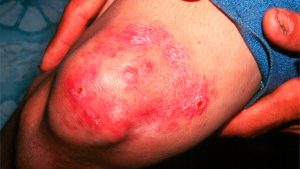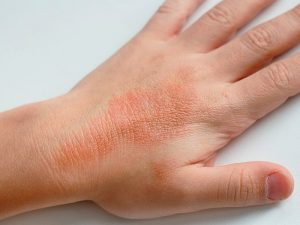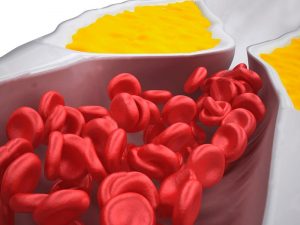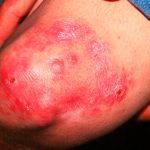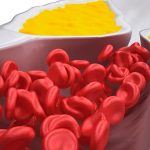Have you ever wondered how the mood changes you experience are possible? How your brain controls and informs the rest of the body about body temperatures, sleep, hunger, thirst or sexual impulses. Well, look no further than the hypothalamus. This structure is part of the limbic system, which is the set of parts of the brain that generates emotions.
What is the Hypothalamus?
The hypothalamus is a tiny part of the brain with significant weight in importance; it contains nuclei that endow it with varied functions. The hypothalamus is situated at the base of the brain and is about the size of an almond. It projects downward from the brain to the pituitary stalk, a tubular connection to the pituitary gland. Thanks to the link with this gland it has a leading role in the endocrine and nervous systems.
Most of all, the hypothalamus is responsible for maintaining an optimal internal balance of the body, known as homeostasis, and it allows the release of hormones that promote the existence of other hormones.
Hypothalamus and Hypophysis
The hypothalamus covers a wide range of vital functions in the body, it sends orders to any area, and sometimes its effects are immediate while others are slow to appear and even remain active for longer times. The reason why the hypothalamus performs fast many tasks is due to its connection with the endocrine system through the hypophysis or pituitary gland.
The pituitary gland takes place just below the hypothalamus, ideally connected to delegate many functions such as sending information and actions through hormones in the bloodstream. The hypothalamus stimulates the pituitary gland to secrete hormones or on the contrary, prevent certain hormones from being produced. The nervous system informs the hypothalamus about the quantity and types of hormones that travel through the blood, and if it detects an imbalance, it starts up its influences on the pituitary gland.
Hypothalamus Functions
The hypothalamus controls some metabolic processes and many of the essential activities of the autonomic nervous system. It synthesizes and generates neurohormones that control and regulate the secretion of pituitary hormones. Its influence includes:
- Control of the intake of food and water, so it handles hunger and thirst, including the balance of fluids and electrolytes.
- Manage of sleep cycles and behavior, as well as circadian rhythm (changes in physical and mental characteristics that occur over the course of a day).
- Control of heart rate, blood pressure and muscle tension.
- Promote glandular secretions of the stomach and intestines.
- Control of sexual arousal and sexual behavior, as well as reproduction.
- It is the part of the brain that controls body temperature.
- Control of emotional responses to any situation.
- Produces substances that influence the pituitary gland to release the primary hormones.
Hypothalamus Regions
There are three main regions of the hypothalamus that group nuclei with vital functions.
Hypothalamus Anterior Region
The anterior region collaborates in the regulation of body temperature through sweat and influences circadian cycles. This region includes the supraoptic and paraventricular nuclei and other smaller nuclei. These mainly involve the secretion of some hormones, which interact with the pituitary gland to produce new hormones. Some of those hypothalamus hormones are:
- Corticotropin-releasing hormone (CRH) affects the body’s reactions to physical and emotional stress. It promotes the secretion of the hormone adrenocorticotropic hormone (ACTH) that allows the production of cortisol.
- Thyrotropin-releasing hormone (TRH) stimulates the pituitary gland to generate the thyroid-stimulating hormone (TSH), which influences the function of the heart, the gastrointestinal tract and the muscles.
- Gonadotropin-releasing hormone (GnRH) promotes the release of reproductive hormones such as the follicle-stimulating hormone (FSH) and the luteinizing hormone (LH).
- This vital hormone controls behaviors and emotions, including sexual arousal, confidence, recognition and maternal instinct; also intervening in the reproductive system, birth and lactation.
- Vasopressin, known as antidiuretic hormone (ADH), controls the level of water in the body through the kidneys.
- This hormone prevents the pituitary gland from releasing growth hormones and thyroid-stimulating hormones.
Hypothalamus Middle Region
In this region are the nuclei ventromedial and arcuate. The first one influences appetite and the second group of neurons releases the growth hormone-releasing hormone (GHRH), responsible for the development of the body.
Hypothalamus Posterior Region
Also called the mammillary region, it includes the posterior hypothalamic nucleus and the mammillary nuclei. The first controls body temperature through shivering and blocks the secretion of sweat. Ongoing research shows mammillary nuclei have a memory function.
Symptoms of Hypothalamus Conditions
Hormones that hypothalamus releases must be in balance to assure the healthy behavior of the body and thus, body’s correct functioning. If there is higher or too low production of a hormone, health and general well-being get affected.
- If the hypothalamus produces in excess the antidiuretic hormone the body will retain water, if the opposite happens, the person suffers dehydration and lowers blood pressure.
- High levels of corticotropin generate acne problems, increases blood pressure and also lead to diabetes, osteoporosis, infertility and muscle problems. While low levels of the hormone cause weight loss, increased skin pigmentation, gastrointestinal upset and decreased blood pressure.
- When gonadotropin level is too low in the body, fertility is affected. A high level of gonadotropin can trigger many conditions because it affects the communication between hypothalamus and pituitary gland.
- The growth hormone at a high level generates abnormal enlargement of skull, hands and feet, in addition to causing problems in menstruation and diabetes. And if it is low, delays puberty in children and decreases muscle mass in adults.
- Too much somatostatin that inhibits growth hormone leads to digestive problems, diabetes and gallstones. Instead, a low level of somatostatin causes the uncontrolled secretion of growth hormone, leading to psychological problems.
- A high level of thyrotropin hormone causes fatigue, depression, weight gain, constipation, dry skin and hair loss. But a low level leads to weight loss, sweating, muscle weakness and heavy menstrual flow.
- The high production of oxytocin is related to the enlargement of prostate glands while a low level hinders lactation, generates symptoms of autism or hinders social development.
It is essential to embrace a healthy lifestyle to reach a healthy hypothalamus; henceforth eating a balanced diet, getting enough sleep and exercising often.


